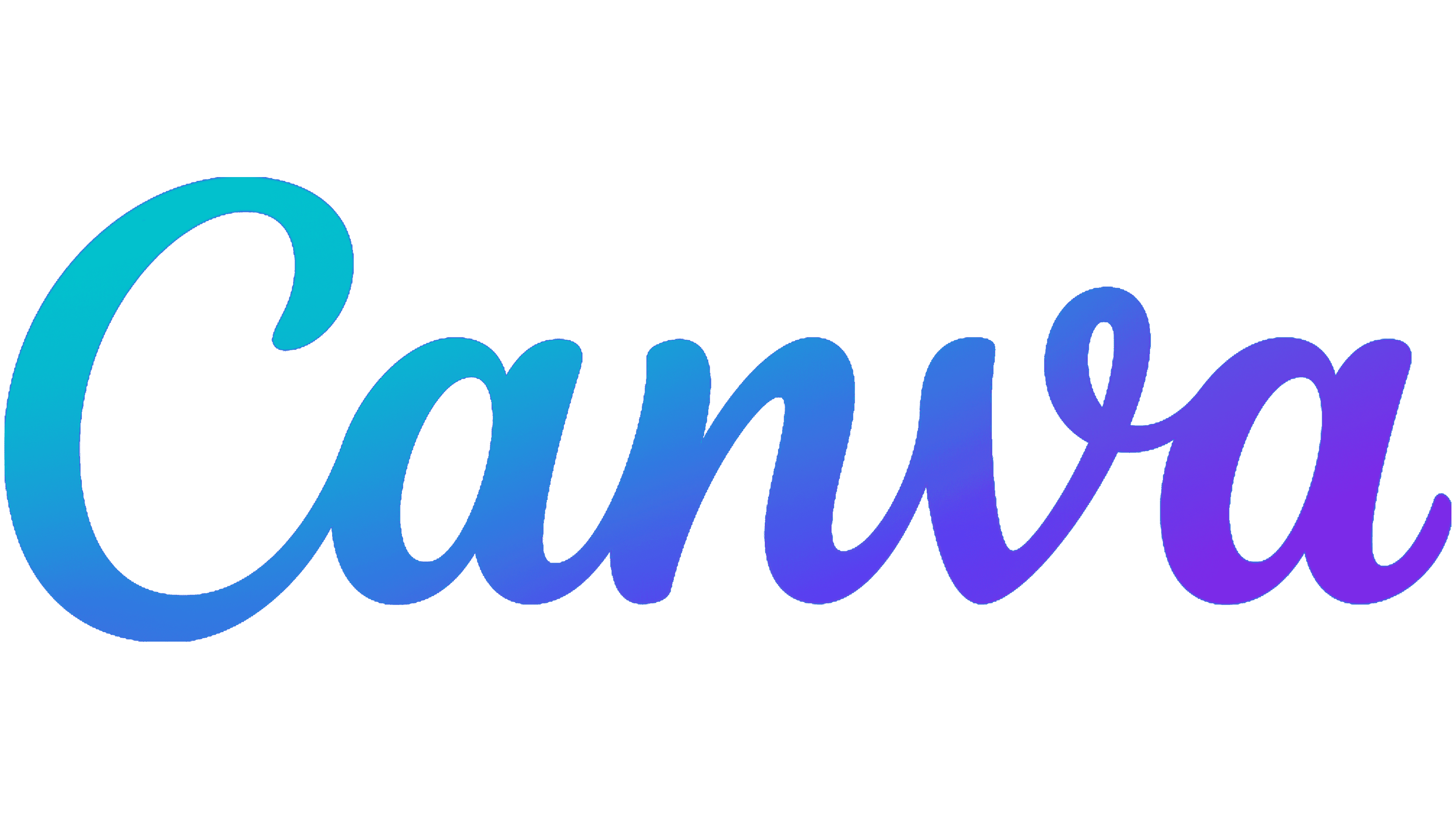Green technology, often known as "climate technology," is shaping our future. As the global community becomes more aware of the impact of climate change, green technology is taking center stage, providing solutions to mitigate its effects and transition us into a more sustainable future.
A recent panel discussion at the Venture Atlanta 2022 Conference, featuring moderator Jonathan Shieber of Footprint Coalition, Bill Nussey of Engage and Tech Square Ventures, and Sophie Purdom of Climate Tech VC, shed some fascinating insights on this burgeoning sector.
The entire conversation was educational and enlightening. You can watch the full 30-minute panel here:
Below are some key takeaways from the discussion.
The Rise of Climate Technology
The rise of green technology is a response to the urgent need to address our climate crisis. It's an umbrella term that encompasses a wide variety of sectors, from renewable energy to food sustainability. But there's more to climate tech than just green energy and other sustainable tech.
Bill Nussey of Engage and Tech Square Ventures mentioned that there's an increasing trend in climate-focused funding, indicating the growing importance and potential profitability of this sector. He also highlighted the importance of carbon marketplaces and carbon sequestration technologies, both of which are crucial aspects of climate tech that can help us reduce greenhouse gas emissions.
The Importance of Climate Intelligence
Sophie Purdom, Managing Partner at Planeteer Capital and Co-Founder of Climate Tech VC, introduced a term that's gaining traction in the industry: "climate intelligence." This concept involves using data and analytics to better understand and manage our environmental impact, enabling businesses and governments to make more informed, sustainable decisions. As part of green technology, climate intelligence is a key tool for effective industry climate management.
The foundation of climate intelligence is data. From weather patterns and greenhouse gas emissions to energy consumption and deforestation rates, vast amounts of climate-related data are collected every day. This data is often complex and difficult to interpret, and as a result, artificial intelligence (AI) and machine learning each play a large role in climate intelligence.
Emerging Sectors in Green Technology
The green technology landscape is vast and diverse, with numerous sectors demonstrating remarkable innovation and growth. The Venture Atlanta panelists highlighted several of these burgeoning areas, each playing a crucial role in our collective pursuit of a more sustainable future.
Renewable and Sustainable Energy
A key sector in green technology is renewable and sustainable energy. This field focuses on harnessing power from renewable sources such as the sun, wind, and water.
Solar energy, for instance, has seen significant advancements in recent years. The development of more efficient and affordable photovoltaic cells has made solar power more accessible than ever. Wind energy, too, is experiencing a renaissance, with offshore wind farms now a common sight in many parts of the world.
The quest for better energy storage solutions is also a hotbed of innovation. Improved battery technologies, such as advanced lithium-ion batteries and emerging solid-state batteries, are critical for storing renewable energy and ensuring a steady power supply even when the sun isn't shining or the wind isn't blowing.
Electric Vehicles
Transportation is another area where green technology is making a substantial impact. Electric vehicles (EVs) have moved from being a niche product to a mainstream choice for consumers, driven by advancements in battery technology and a growing awareness of the need to reduce carbon emissions.
Moreover, the electrification of transportation extends beyond passenger cars. Electric buses, trucks, and even ships are being developed and deployed, pointing to a future where clean, electric power propels our journeys on land and sea.
Carbon Sequestration Technologies
One of the more innovative sectors in green technology is carbon sequestration. This field focuses on capturing and storing carbon dioxide to prevent it from contributing to global warming. Techniques range from traditional methods, like reforestation and soil management, to cutting-edge technologies that capture CO2 directly from the air or at the point of emission.
The development of carbon marketplaces, where carbon credits can be bought and sold, also holds promise. These platforms can provide economic incentives for companies to reduce their carbon footprints and invest in carbon sequestration technologies.
Food Sustainability
Finally, the panelists highlighted food sustainability as a crucial yet often overlooked aspect of climate tech. Agriculture contributes significantly to global greenhouse gas emissions, making innovations in this sector vital to our climate goals.
From precision farming techniques that optimize resource use to the development of plant-based and lab-grown meats, green technology is reshaping how we produce and consume food. Furthermore, advances in supply chain management, including the use of blockchain and other tracking technologies, can help reduce food waste and make our food systems more efficient and transparent.
The Future of Climate Technology
As we continue to grapple with the realities of climate change, the importance of green technology will only increase. However, the panelists agreed that collaboration is vital to its success. Governments, corporations, and startups must work together to promote climate tech advancements and ensure their widespread adoption.
Moreover, the panelists emphasized the need for ongoing innovation. As Nussey pointed out, “It's not just about existing technologies but about developing new ones that can further mitigate the effects of climate change.” From breakthroughs in battery storage for renewable energy to advances in carbon capture and sequestration, the future of green technology is exciting and full of potential.
The Role of Venture in Advancing Green Technology
Venture capital plays an indispensable role in the development and growth of green technology. By providing crucial funding and support, venture capitalists are enabling innovative startups to push the boundaries of what's possible in the realm of climate technology. Their investments are driving advancements in a variety of sectors, from renewable energy and electric vehicles to food sustainability and climate intelligence.
The conversations taking place at forums like Venture Atlanta are a testament to this growing interest in green technology from the venture capital community. As our panelists noted, there's a palpable shift in the business world towards more sustainable technology and solutions. This shift is being fueled in large part by venture capital, and as we continue to navigate the climate crisis, the role of venture in green technology will only become more important.
FAQ
What is green technology?
Green technology, also referred to as environmental technology, sustainable tech, or clean technology, is a broad term that encompasses methods, materials, and techniques used to preserve the environment, reduce greenhouse gas emissions, and utilize resources efficiently. It includes renewable energy sources like solar and wind power, electric vehicles, energy-efficient appliances, carbon sequestration technologies, and more. Green technology is a key component in the global effort to combat climate change and build a sustainable future.
Why invest in green technology?
With the increasing global focus on sustainability, green technology sectors offer significant growth potential. From renewable energy to carbon marketplaces, these investments can yield substantial returns. Moreover, as businesses and governments are urged to reduce their carbon footprints, demand for green technologies is expected to rise, making them a sound investment.
What are some examples of green technology?
Green technology covers a broad array of tools, systems, and applications. Examples include solar panels and wind turbines for generating renewable energy, electric vehicles for sustainable transportation, energy-efficient appliances that reduce power consumption, and smart grids that optimize energy use. Additionally, climate intelligence software for analyzing environmental data, carbon sequestration technologies that capture and store carbon dioxide, and sustainable agriculture methods promoting food sustainability are also part of green technology.
How does technology affect climate change positively?
Technology can have a positive impact on climate change by offering solutions to reduce greenhouse gas emissions and conserve natural resources. For instance, renewable energy technologies like wind and solar power can replace fossil fuels, reducing carbon emissions. Electric vehicles and energy-efficient appliances can lower energy consumption.
How does technology affect climate change negatively?
While technology has brought countless benefits, it can also negatively impact climate change. For instance, the production and use of many technologies can contribute to greenhouse gas emissions, which exacerbate global warming. Industries such as manufacturing, transportation, and energy production often use technology that relies on fossil fuels, leading to high carbon emissions. Furthermore, the disposal of electronic waste can also harm the environment if not done properly.
Describe how the use of clean technology contributes to a green economy.
Clean technology, an integral part of green technology, is pivotal in shaping a green economy. It includes technologies that use renewable materials and energy, emit fewer greenhouse gases, and have a minimal impact on the environment. By investing in clean technology, economies can shift from fossil fuel-dependent practices to sustainable ones, thereby reducing their carbon footprint. Clean tech stimulates economic growth by creating new jobs in sectors like renewable energy, electric vehicles, and climate tech sectors.
Venture Atlanta 2023
Check out more thought-provoking conversations from industry leaders by visiting our YouTube channel or reading our blog. And don’t forget that registration for Venture Atlanta 2023 is open now. Don’t miss out — register today!
Fostering a positive and proactive company culture should be at the forefront of any business strategy. It’s what sets your company apart from the rest. A happy workforce makes for productive results, so it’s no wonder that companies of all shapes and sizes are working hard to make their organizations into exceptional places to work.
As we learned in Venture Atlanta 2022’s Talent Wars Panel, the best employee retention strategies have less to do with overall compensation and more to do with building a strong culture. So, what does great company culture look like? Let's take a look at 20 different startups that are embracing an innovative company culture, as well as some examples of startup companies that exemplify these principles.
1. Monday.com

Monday.com, a popular work operating system, has been recognized for its unique and empowering company culture. The startup prides itself on its flat organizational structure, giving employees a strong sense of autonomy and ownership of their work. Monday.com offers employees various other perks, including flexible work hours, team events, and professional development opportunities. The company was selected by Comparably as one of the Best Places to Work in New York 2023, an annual award given to companies with the top-performing company cultures based on real employee feedback. The company also appeared on Inc’s Best Workplaces of 2022 list, making it an excellent example of a startup company with a strong culture.
2. Canva

In addition to its free products and user-friendly interface, this easy-to-use graphic design platform has also garnered attention for its culture that fosters innovation and collaboration. Canva's offices feature vibrant workspaces, and employees are encouraged to take part in team-building activities and skill development workshops. The Australian-based company emerged as a true inspiration back in 2020 when it was celebrated for being one of the best startups at keeping remote employees engaged during the pandemic. Canva ranked #3 on Great Place to Work's 2020 Best Workplaces in Australia list, and the company’s upward trajectory doesn’t seem to be slowing down any time soon.
3. Iterable
Iterable, a growth marketing platform, is committed to cultivating a supportive and inclusive company culture. The organization emphasizes collaboration, diversity, and work-life balance, which translates to a vibrant and dynamic work environment. Iterable invests in its employees' growth, offering stipends for learning and development, health and fitness, and even a paid sabbatical as part of its employee benefits.
4. Outreach

Outreach, a sales engagement platform, was quite literally built on determination. In 2014, the founders found themselves short on cash and in dire need of hitting their goals for the startup to survive. They ended up doing just that and more, growing into a company with offices in three countries and landing a spot in America’s 100 Most Loved Companies by Newsweek.
5. Figma
Figma, a collaborative design tool, has built a company culture that prioritizes innovation, collaboration, and employee well-being. The organization offers a supportive work environment, providing opportunities for professional development, flexible work hours, and various team events. This focus on company culture has helped Figma quickly become a leading player in the design software industry. In 2020, Figma was recognized as one of Fast Company's Best Workplaces for Innovators. Figma’s continued success led to Adobe acquiring the company in late 2022.
6. Notion

Notion, an all-in-one productivity platform, has created a company culture that promotes teamwork, innovation, and employee satisfaction. The organization offers a supportive work environment, flexible hours, and opportunities for professional development. In 2021, Notion received an award in the Learning Excellence Awards’ Outstanding Innovation category for STAR® Manager, their groundbreaking leadership and management development program that supports managers at all levels. By prioritizing personal and professional growth, Notion has built a thriving startup culture that continues to drive its success.
7. Coda
As a collaborative document editing platform built on the mission of bringing teams together, Coda is committed to building a company culture that values team-minded innovation. The organization offers a supportive environment where employees can thrive. This focus on company culture has helped Coda become a leading player in the document collaboration space and earned them a spot on Inc’s Best Workplaces of 2022.
8. Loom
Loom, a video messaging platform, places a strong emphasis on collaboration, transparency, and employee well-being. The company has cultivated an inclusive work environment that both encourages innovation and fosters employee growth. Loom offers various benefits, including flexible work arrangements, learning opportunities, and team-building activities, helping to create an active and engaged workforce.
9. Calendly
Calendly, a popular scheduling automation software, has cultivated a company culture that values diversity, collaboration, and personal growth. The startup hosts regular "Calendly Cares" events, where employees engage in philanthropic activities and volunteer work. As a result of its exceptional startup culture, Calendly was a recipient of Comparably’s Best Work-Life Balance and Perks & Benefits awards in 2021.
10. Asana

Asana, a work management platform, fosters a culture centered around mindfulness, diversity, and continuous improvement. The company's office spaces are designed to promote both focused work and team interaction, and Asana provides resources for personal growth and learning. In a tech industry still largely dominated by men, the company is made up of 45% female employees and found itself on Fortune’s list of 100 Best Workplaces for Women in 2022.
11. Zapier
Zapier, an automation platform that connects various apps and services, has established a company culture that emphasizes remote work, flexibility, and employee empowerment. The organization promotes a sense of autonomy and encourages team members to take ownership of their projects, fostering innovation and productivity. By providing various benefits, such as flexible work hours and learning opportunities, Zapier has created an engaging and dynamic work environment.
12. Buffer

Buffer, a social media management platform, stands out for its commitment to transparency, inclusivity, and work-life balance. The company has a strong remote work culture and offers employees unlimited vacation days to promote well-being. Buffer was recognized as one of Quartz's Best Companies for Remote Workers in 2021.
13. Webflow
Webflow, a website design and development platform, is dedicated to fostering a company culture that values teamwork, creativity, and employee satisfaction. The organization offers a supportive work environment, professional development opportunities, and various team-building activities. By prioritizing employee well-being and collaboration, Webflow has built a thriving startup culture that drives its success in the competitive web design space.
14. Superhuman
Superhuman, an email productivity tool, boasts a supportive work environment, professional development opportunities, and team-building events. By prioritizing employee well-being and collaboration, Superhuman has attracted top talent and achieved success in the competitive email productivity space.
15. Chorus.ai

Chorus.ai, an AI-driven conversation analytics platform, is recognized for its culture that fosters growth, innovation, and teamwork. The company hosts regular team-building events and offers continuous learning opportunities, including leadership development programs. The innovative company was acquired by ZoomInfo in 2021, and a year later, Chorus.ai was recognized in Fortune’s 2022 Best Workplaces in the Bay Area.
16. Duolingo
![]()
Duolingo, a popular language learning app, has built a company culture that emphasizes employee well-being, continuous learning, and social impact. The startup hosts regular "Duolingo Talks," featuring guest speakers from various industries, and dedicates resources to support underrepresented groups in tech. Duolingo appeared in Inc’s Best Led Companies of 2021.
17. Airtable
Airtable, a flexible cloud-based collaboration platform, has built a company culture that emphasizes innovation and collaboration. The organization offers a supportive work environment, flexible hours, and opportunities for professional development. By prioritizing its own employees, Airtable has built a thriving startup culture that drives its success in the rapidly growing no-code/low-code market.
18. GitLab

GitLab, a web-based platform for software development and collaboration, is known for its 100% remote work culture, which offers employees exceptional flexibility and work-life balance. GitLab's commitment to transparency and inclusivity has earned its recognition as a great place to work. In 2022, GitLab earned a spot on Fortune’s list of Best Workplaces in Technology.
19. Gloat
Gloat, an AI-driven internal talent marketplace, has built a company culture that encourages innovation, collaboration, and employee growth. With a focus on empowering employees to take ownership of their work and drive the company's success, Gloat offers a supportive and engaging environment that contributes to its rapid growth and industry disruption.
20. Samsara

Samsara, an IoT platform for connected operations, has cultivated a culture that emphasizes inclusivity from the top down, with diverse representation at the leadership level. The company invests in the growth and development of its employees, offering mentorship programs, skill-building workshops, and resources for career advancement. Samsara was recognized for helping move the needle on diversity and inclusion as a winner of RippleMatch’s 2022 Campus Forward Award.
Venture Atlanta Alumni With Strong Company Culture
Many of our very own alumni companies are also shining startup examples that embody healthy company cultures. We’ve highlighted a few of our favorites below!
MessageGears
MessageGears is a real-time customer engagement platform.
A member of the Inc. Best Workplaces 2022 list, MessageGears takes a purposeful approach to fostering a culture that prioritizes innovation and customer success. Their culture starts at the top, with their CEO serving as an executive sponsor to the company's culture committee, where team members from every department meet to discuss fostering employee engagement and improving benefits.
Florence
Florence advances clinical trials through software for managing document and data flow between research sites and sponsors.
Another member of the Inc. Best Workplaces 2022 list, Florence puts culture first by prioritizing transparency and recognizing team members. The company also offers unlimited time off with a mandatory three-week minimum vacation policy, Zoom yoga and weekly meditation events, plus fun activities like virtual scavenger hunts and karaoke.They also have a dedicated committee to ensure that diversity and inclusion remain a focus within the company's culture.
Pardot
Salesforce Pardot (also known as Marketing Cloud Account Engagement) is a leading marketing automation platform that stands out as a startup with a strong company culture rooted in collaboration and innovation. The organization is dedicated to creating a nurturing work environment that promotes personal and professional growth for its employees.
The company supports employee development through mentorship programs, skill-building workshops, and opportunities for career advancement. Pardot also values work-life balance, offering flexible hours and remote work options to ensure employee well-being. By focusing on employee satisfaction and fostering a supportive atmosphere, Pardot has built a vibrant startup culture that attracts top talent and contributes to its success in the marketing automation industry.
Goodr
Goodr is a food waste management company built on empowerment through sustainable solutions. That very same mission is clearly evident in their culture as well, as the organization encourages employees to bring their unique skills and perspectives to the table, fostering an environment of collaboration and continuous improvement. Goodr prioritizes employee well-being, offering a range of benefits and resources to support work-life balance and personal growth.
Carvana
Carvana, a revolutionary online car buying and selling platform, has set itself apart as a startup with an outstanding company culture. Recognizing the importance of a supportive work environment, Carvana invests in its employees by providing a variety of employment resource groups that promote diversity and inclusion.
The company values collaboration and innovative thinking, creating a workplace where employees feel empowered to share ideas and contribute to the organization's success. Carvana also prioritizes employee well-being, offering comprehensive benefits packages, team-building activities, and flexible work arrangements. This commitment to employee satisfaction has helped Carvana build a dynamic startup culture that fuels its growth and industry disruption.
Show Off Your Company at Venture Atlanta 2023
Each and every one of these startup company examples demonstrates the importance of fostering a positive and proactive company culture. By emphasizing employee well-being and creating an environment where everyone can thrive, these players in tech have set themselves apart in their respective industries. We look forward to discovering more shining stars in company culture at Venture Atlanta 2023. Register today!
Venture Atlanta is an organization that prides itself on connecting innovative entrepreneurs with the capital and resources they need to grow and scale their businesses. We couldn't be more excited for this year's conference, as we are confident it will be the best one yet.
Our enthusiasm stems not only from the exceptional line-up of entrepreneurs, investors, and industry experts who will be in attendance but also from the remarkable group we have assembled to serve on our 2023 Board of Directors. This esteemed team of individuals represents the pinnacle of excellence and diversity, bringing a wealth of experience, knowledge, and passion to the table.
The Venture Atlanta 2023 Board of Directors has been carefully selected to ensure a variety of perspectives, backgrounds, and areas of expertise. Each member is dedicated to supporting the growth and success of innovative entrepreneurs, fostering a vibrant and inclusive startup ecosystem, and ensuring that Venture Atlanta continues to be a premier event for connecting entrepreneurs with the resources they need. With their combined experience and commitment to innovation, the Board of Directors is poised to make this year's conference an unforgettable experience for all who attend.
We are thrilled to introduce you to the Venture Atlanta 2023 Board of Directors, featuring some familiar faces as well as some new ones!
Meet the 2023 Venture Atlanta Board of Directors
Venture Atlanta 2023 Chairman

Mark Flickinger - Panoramic Ventures
Mark is a General Partner and the COO at Panoramic Ventures, where he oversees fundraising, investor relations, marketing/branding, talent acquisition, and portfolio acceleration. Before joining BIP Capital in 2015, Mark worked for 4th Strand, a product performance consulting firm that was acquired by Intertek in 2012. Mark has served on the Venture Atlanta Board of Directors since 2021. Read his full bio here >>>
Newly-Added Board Members

Dr. Loretta Daniels - Technology Association of Georgia, Kendall & Kendrick Consulting Group
Dr. Loretta Daniels, director of the Technology Association of Georgia’s Bridge Builders program and CEO and Managing Partner at Kendall & Kendrick Consulting Group, is an expert in organizational leadership, DEI, conflict management, and communication. As an executive leader in the corporate arena, she has served in executive leadership roles such as Chief Executive Officer, Chief Operations Officer, Vice President of Sales and Marketing, Executive Director of Sales Operations, and General Manager. Read her full bio here >>>

AJ Fang - Assurant Ventures
AJ Fang is currently a Partner of Assurant Ventures where he leads investments in Proptech, Auto Tech, and Insurtech. Prior to joining Assurant, AJ was a Senior Vice President at Silicon Valley Bank where he worked with national venture capital firms and focused on providing strategic advisory and venture financings to technology startups. Read his full bio here >>>

Peter Franconi - Fulcrum Equity Partners
Peter is a Senior Vice President of Business Development at Fulcrum Equity Partners, an Atlanta-based growth equity fund that invests in B2B software and healthcare services companies. Having worked at both large and small startups, he understands the challenges entrepreneurs face especially in fast-growing companies. Read his full bio here >>>

M. Cole Jones - RIISE Ventures, VSP Global
M. Cole is a serial entrepreneur, small business champion, and venture catalyst based in Atlanta, GA. He co-founded Covello, an innovation firm that helps enterprises, brands, and high-growth companies ideate and build products, before going on to found RIISE Ventures, a firm focused on reimagining innovation in sports, gaming, and entertainment. He's recognized as a thought leader in corporate innovation and his experience extends beyond his work with ventures, with a track record as a seasoned ecosystem builder with organizations such as VSP Global. Read his full bio here >>>

Anastasia Simon - Techstars Atlanta
Anastasia Simon is the current Investment Principal at Techstars Atlanta & Techstars Impact powered by Cox. She brings a decade of experience in the startup ecosystem, ranging from marketing and business development to venture capital and community building. Anastasia is an experienced operator who has developed programming for the first fully virtual incubator for early-stage proptech companies, managed strategic partnerships with large-scale organizations, and served as a mentor during Facebook’s North American Community Accelerator. Read her full bio here >>>
Venture Atlanta Legacy Board Members

Allyson Eman - Venture Atlanta CEO
Allyson Eman has more than 30 years of marketing, communications, sales leadership, and business development experience. In 2007, Allyson took on the role of Executive Director for the newly created Venture Atlanta annual conference. Allyson has worked with key business leaders across the country and founding organizations Metro Atlanta Chamber, Atlanta CEO Council, and Technology Association of Georgia to build Venture Atlanta. Read her full bio here >>>

Jason Caplain - Bull City Venture Partners
Jason is a General Partner and Co-Founder of Bull City Venture Partners. Prior to co-founding BCVP, Jason co-founded Southern Capitol Ventures. Previously, he was at Red Hat (NYSE:RHT) in their finance group through the successful IPO in 1999. Read his full bio here >>>

Jackie DiMonte - Chicago Ventures
Jackie is currently a partner at Chicago Ventures. Prior to joining Chicago Ventures, she was a principal at Hyde Park Venture Partners, working with portfolio companies such as RoadSync, Podchaser, Fixer, FactoryFix, and PartySlate. Read her full bio here >>>

Alex Estevez - Accel Partners
Mr. Estevez is a Venture Partner with Accel Partners, a global leader in venture capital with past investments in top companies such as Atlassian, Dropbox, Facebook, Jet.com, Lynda.com, Qualtrics, Slack, Squarespace, and Spotify. Read his full bio here >>>

Richard Fraim - Knoll Ventures
Rich is a Partner at Knoll Ventures, an Atlanta-based early-stage venture capital firm that invests in pre-Series A technology businesses focused on B2B markets. He has been active in the southeastern technology ecosystem for more than 10 years. Read his full bio here >>>

David Hartnett - Metro Atlanta Chamber
As Chief Economic Development Officer at the Metro Atlanta Chamber, David leads the team focused on the retention, recruitment, and expansion of existing and start-up companies within key clusters. Read his full bio here >>>

Vanessa Larco - New Enterprise Associates
Vanessa Larco joined NEA as a Partner in 2016 and focuses on Enterprise SaaS and Consumer Services investing. She is passionate about technology, services, and products that enable people to be more productive and efficient at work and at home. Read her full bio here >>>

Scott Lopano - Tech Square Ventures
Scott Lopano is a Principal at Tech Square Ventures where he is responsible for sourcing new companies, deal execution, and supporting the portfolio’s growth. Since joining TSV in 2017, Scott has led the execution of 50+ new investments. Read his full bio here >>>

Palaniswamy “Raj” Rajan - CTW Venture Partners
Raj is currently the Managing Partner of CTW Venture Partners, an early-stage venture capital fund that invests in and assists seed and early-stage entrepreneurs in all industries in Atlanta and the Southeast who are engaged in disruptive innovations and technologies. Read his full bio here >>>

Kim Seals - The JumpFund
Kim Seals is a General Partner at The JumpFund and is an investor in early-stage technology, health care, energy, fintech, and consumer products companies. Since 2013, The JumpFund has invested in more than 30 woman-led, Southeast-based companies across our two venture capital funds. Read her full bio here >>>

Elizabeth Stephens - Noro-Moseley Partners
Elizabeth Stephens joined NMP as a Vice President in January 2020. She supports the firm’s investments in information technology and healthcare companies. Elizabeth currently serves as a board observer for Ekos and Whitebox. Read her full bio here >>>

Emery Waddell - Vocap Partners
Emery is passionate about finding, funding, and furthering high-potential software businesses delivering products that improve lives, in big ways and small. As Principal at Vocap Partners, a Series A venture capital firm focused on B2B software, his primary areas of focus include the future of work and media. Read his full bio here >>>

Ryan Whittemore - Florida Funders
Ryan Whittemore is the Chief Investment Officer for Florida Funders, a hybrid Venture Capital Fund and 1400-member accredited investor syndicate focused on early-stage seed to Series A stage tech. Read his full bio here >>>

Joey Womack - Goodie Nation
Part super-connector, part startup coach, Joey Womack is the Founder/CEO of Goodie Nation, a national support nonprofit that is closing the relationship gap for tech-focused social entrepreneurs and diverse founders. Read his full bio here >>>
We are beyond thrilled to have such a top-tier group of individuals leading the charge for Venture Atlanta 2023. With their guidance and dedication, we believe that this year's conference will surpass all expectations and set new standards for excellence in the world of entrepreneurship and venture capital.
The tech industry has always been known for its rapid growth, innovation, and resilience in times of economic hardship. As we enter a new phase of economic uncertainty, many entrepreneurs and business leaders are looking to the tech industry’s growth as a source of opportunity. In this article, we delve into the current state of the tech industry, highlighting promising technology opportunities, and shedding light on how economic downturns can create a fertile ground for startups and business leaders.
The Current State of the Tech Industry
The tech industry is currently experiencing a period of rapid growth and innovation. Despite economic uncertainty, 2022 was still the second-largest year for investing in companies in the Southeast. The industry has seen a surge in demand for technology and software, driven by the shift to remote work and the increased reliance on digital solutions. According to a report by Gartner, global IT spending is expected to reach a value of over $4.6 trillion in 2023. The increasing adoption of cloud computing, big data analytics, artificial intelligence, and the Internet of Things (IoT) is shaping the industry, offering numerous technology opportunities.
Economic Downturns and the Tech Industry
While economic downturns can be challenging for many industries, the tech industry has historically shown a remarkable ability to weather economic storms. In fact, some of the most successful companies in tech, such as Airbnb, Slack, and Uber, were all founded during economic downturns. This is because economic downturns create a unique set of opportunities for entrepreneurs and startups. Here are some examples.
Reduced Competition
During an economic downturn, many businesses struggle to survive, and some may even fail. This can create a void in the market that can be filled by new companies. With fewer competitors, it can be easier for a new business to establish a foothold and gain market share.
Access to Top Talent
Many people may be out of work or looking for new opportunities. We’ve all seen the headlines detailing tens of thousands of layoffs in the tech industry. This can provide a pool of talented and experienced individuals who may be available for hire. With more talented people available, it can be easier to build a strong team that can help a business succeed.
Lower Costs for Resources
The cost of resources such as office space, equipment, and supplies may be lower during an economic downturn. This can help reduce the upfront costs of starting a new business or investing in an existing one. Additionally, lower costs can help a business be more financially stable in the long run, especially during tough economic times.
Increased Demand for Innovative Solutions
During an economic downturn, businesses may be more willing to try new and innovative solutions to cut costs or improve efficiency. This can create technology opportunities for companies to develop and offer new solutions that meet the changing needs of businesses.
Opportunity for Strategic Acquisitions
At times of economic uncertainty, some companies that are struggling financially may be looking to sell or merge with other companies. This can create opportunities for many growing software companies to acquire new technologies, talent, and customer bases at a lower cost than they would during a more stable economic period.
Opportunities for Tech Industry Growth
The tech industry offers a multitude of opportunities for growth, especially right now.
Software development is an area in particular with lots of opportunity at the moment. With the rise of cloud computing and the increasing demand for software solutions, there is a growing need for talented software developers. Additionally, the growth of the IoT is creating opportunities for companies that specialize in developing hardware and software solutions for connected devices.
Another area for tech industry growth is cybersecurity. With the increasing frequency of cyberattacks, there is a growing demand for cybersecurity solutions and services. This is creating opportunities for startups and established companies alike to develop innovative cybersecurity solutions and services.
Opportunity Knocks: The Technology Sector Outlook
The future of the tech industry looks bright, marked by continued growth and innovation. As the world becomes increasingly connected, the demand for technology solutions continues to rise. Additionally, emerging technologies like blockchain, quantum computing, and augmented reality promise to revolutionize the industry further, creating fresh opportunities for entrepreneurs and startups.
The tech industry remains dynamic, offering a wealth of opportunities for those willing to embrace risk and seize the moment during economic downturns. Staying informed about industry trends and developments and participating in events like Venture Atlanta can position individuals for success.
Atlanta Tech Events to Look Out For
For those looking to get involved in the tech industry, there are a number of events happening in Atlanta that are worth checking out. Render ATL is an annual event that brings together designers, developers, and entrepreneurs to share ideas and collaborate on projects. Startup Atlanta also maintains a calendar of events that is worth checking out for anyone interested in the Atlanta tech scene. Registration for Venture Atlanta 2023 will open in April, so be on the lookout!
FAQ
What is the outlook for the tech sector in 2023?
The outlook for the tech sector in 2023 is generally positive, with continued growth and innovation expected. The demand for technology solutions is expected to continue to rise, particularly in the areas of cloud computing, big data analytics, and the IoT.
What is the outlook of the IT sector?
The outlook for the IT sector is also positive, with continued growth and innovation expected. As the world becomes increasingly connected, the demand for technology solutions is expected to continue to grow, creating new opportunities for those in the IT sector.
What is the future of the tech industry?
The future of the tech industry is bright, with continued growth and innovation on the horizon. New technologies such as blockchain, quantum computing, and augmented reality are poised to revolutionize the tech industry and create new opportunities for entrepreneurs and startups.
Is the technology sector growing?
Yes, the technology sector is growing at a rapid pace. The increasing demand for technology solutions and the rise of new technologies such as the IoT and artificial intelligence are driving growth in the tech industry.
Which area of technology has the most job opportunities?
There are many technologies that offer job opportunities, including software development, cybersecurity, data science, and cloud computing. The demand for skilled professionals in these areas is expected to continue to grow in the coming years.
Silicon Valley Bank has been a friend and supporter of Venture Atlanta for over 16 years. The shocking news surrounding its collapse on March 10 was devastating to so many. Seeing the collapse of a bank that gave countless startups and tech companies the power to chase their dreams was a sobering reminder that the economic cycle is not always pretty. However, in challenging times like these, it’s important for today’s business leaders to step up and provide guidance to their teams. As the fallout from SVB and Signature Bank’s collapse continues to unfold, we wanted to share our thoughts and provide readers with a resource they can use to navigate the storm.
How to Lead in Challenging Times
"The ultimate measure of a man is not where he stands in moments of comfort and convenience, but where he stands at times of challenge and controversy."
- Martin Luther King Jr.
All great leaders (ourselves included) have had to face adversity at some point in their lifetime. Today, more than ever, it is crucial for those courageous individuals to step to the forefront and be an inspirational force for their companies and employees to follow. During our 2022 panel, we spoke to Jeff Immelt, former CEO of GE, about what it takes for companies to be resilient in the face of economic adversity.
1. Seek Out the True Problem Solvers
Not everyone is built for leadership, and that’s okay. The first step in times like these is to identify who is right to assume that responsibility. The best leaders are natural problem solvers.
2. Provide Steady Guidance
It is important for leaders to not panic when times are seemingly at their worst. Great leaders absorb fear and project confidence to their team.
3. Stay Focused on the Future
While things may get worse at any time, remember that there is always a future ahead. Although it can be difficult to keep your chin up in a time like this, stay positive and focused on your ultimate long-term goals. You’ll get through this.
4. Always Hunt for New Opportunities
Whether you’re a small or big business, never be afraid to take risks and go in a new direction. Adaptability can go a long way.
5. Maintain a Sense of Calm
As Immelt said in his fireside chat, “As you’re going through a crisis, give your team things that they can work on. Don’t bend over backwards to scare them.” Keeping your team together is one of the most important things you can do to weather the storm.
If you’re looking to learn more, check out the recap of our full chat with Jeff, including how he helped guide GE through 9/11, the financial crisis of 2008, and the Fukushima Disaster of 2011.
What Comes Next?
"In times of great stress or adversity, it's always best to keep busy, to plow your anger and your energy into something positive."
- Lee Iacocca
We know that since SVB’s collapse, federal regulators also seized Signature Bank to prevent further panic. The Federal Reserve, Treasury Department, and FDIC have jointly announced that depositors will be able to access all of their money, making an exception to the rule that normally insures up to $250,000 max.
What lies ahead is still unclear, though. Here are a couple of things to keep your eyes on, according to Bloomberg.
1. Are Bigger Issues for Banks Like First Republic Still to Come?
As the financial ripples hit other banks, it is important to have a plan in place to make sure your money is safe.
2. Will New Regulations Be Put in Place?
To prevent these types of bank collapses from occurring in the future, it can be assumed that new rules and regulations will be put in place. Will this put a strain on access to credit and venture capital?
How to Move Forward
"Success is not final, failure is not fatal: it is the courage to continue that counts."
- Winston Churchill
Venture Atlanta 2022 saw the largest and most diverse lineup of companies yet. Although the economic tides have turned in recent days, it is important to shine a light on the number of innovative businesses out there. Even though today may be challenging, we can build a better future together.
All over social media, especially LinkedIn, leaders including Venture Atlanta alumni are sharing lessons they’ve learned and helpful tips for the road ahead. In a recent post, Rob Kischuk, CEO and founder of Bellwood Labs, gave perspective on how he learned from Silicon Valley Bank’s sudden collapse.
Kischuk says it is important for businesses to make sure their deposits are secured by the FDIC at all times. He also argues for keeping money in a brokerage account, as the FDIC typically insures up to $500,000.
Kischuk and Karen Houghton, CEO and Founder of Infinite Giving, both agree on the importance of cash sweeps. If the $250,000 that is insured doesn’t cover all of your cash, ask your bank if it offers a sweep program. These tend to cover a greater amount of capital and can be a lifesaver if anything goes wrong. Additionally, you may be able to reduce your risk by investing in Treasury Bills, which are fully backed by the U.S. government.
If you’re a business looking for a new financial partner, we’ve identified a couple of options, including Fieldpoint Private, and created a thread that will hopefully uncover more.If you’d like to chat with us, do not hesitate to reach out. Venture Atlanta is here to support and help guide you through this difficult time.
The closing panel of Venture Atlanta 2022 was definitely the most anticipated of the conference. On stage in front of a packed Atlanta Symphony Hall, three sports legends joined Atlanta serial entrepreneur Phyllis Newhouse (CEO of Xtreme Solutions) to discuss the influencer economy and how personal branding is crucial for success and generational wealth. In Venture Atlanta’s Hall of Fame panel, NBA all-timer Julius "Dr. J" Erving and NFL hall-of-famers Jerome Bettis and Marcus Allen shared their personal experiences, values, and personal branding examples that helped each of them shape their careers and build a lasting legacy.
The conversation was candid, inspiring, and at times, hilarious. You can watch the full panel here:
Below are some key takeaways from the discussion.
The Hall of Fame of Values: Consistency, Personality, and Giving Back
When asked about each of their individual “value cards,” the athletes shared what they brought to their teams and carried with them throughout their careers.
Dr. J, one of the most influential and iconic basketball players in the history of the sport, shared that his value card was consistency. He aimed to be a consistent team player and captain, showing up every night to do his best. He operated under the assumption that not every game would be one for the record books, but as long as he could consistently produce, he was playing his role well.
Jerome Bettis, the hall-of-fame Rams and Steelers power running back, said his value card was his personality. He’s always been able to draw people in with his humor and make them feel at ease. "My teammates were drawn in. When I’m able to interact with people and they get to meet me, I love to laugh and joke. As a result, people become disarmed pretty quickly," Bettis said. He credits this strength of his as a driving force of his success, both in football and beyond.
Another hall-of-fame running back in Marcus Allen, who played for the Raiders and the Chiefs in a 16-year NFL career, shared that his value card has always been his love for other people. He started by speaking to the idea of a self-premium that he always put on himself. He knew his worth, but he always valued others and used his platform to give back to his community. "I put a premium on myself, but I love people just as much as I love myself. I’m fortunate that I’ve always been able to give back. Lots of times in sports, you’re being replaced. If you’re a good person, you’ll give that next guy, the replacement, the knowledge they need to succeed. That was always one of my value cards," Allen said.
The Importance of Role Models
All three athletes talked about the role models who inspired them in their journeys. Dr. J listed some of his basketball heroes, including Wilt Chamberlain and Bill Russell, as well as entertainers like Grover Washington Jr. and Bill Cosby.
Jerome Bettis credited his father for modeling hard work and giving him a moral compass. "He was the person I emulated growing up," Bettis said. He also mentioned watching Walter Payton play football and being impressed by his mental toughness. "As a football player, I got to watch Walter Payton from afar when he played the Lions. He wasn't the strongest or fastest, but he had a mental toughness that no one could break. That’s something I added to my game," Bettis said.
For Marcus Allen, his father and coaches were significant influences, and he looked up to Muhammad Ali and Dr. J for their intellect, courage, and grace. "Dr. J has always been someone I’ve looked up to. The intellect, the courage and the grace. Muhammad Ali was someone I always looked up to and the only person I ever really got an autograph from. He and Doc are very alike. I always wanted to be great. But even more, I always wanted to make my parents proud," Allen said.
How to Invest in the Future
The athletes also discussed the importance of investing in the future, both financially and through education. Marcus Allen said he wished he had taken more business courses earlier in his career. He stressed the value of engaging with people and leaving a positive impact on every job, no matter how small.
As we now find ourselves fully entrenched in the influencer economy, Jerome Bettis advised being mindful of social media and how it affects one's personal branding. He emphasized the importance of staying authentic and consistent with who one is as a person. "Be mindful of these things that are very prevalent and weren’t years ago. Be conscious of what you present to the public. Social media doesn’t take a day off. Everything you present is telling a story. If that story is inconsistent with who you are, you’re not being authentic."
Dr. J, who has had major success as a pitchman for various products and companies, shared his approach to building wealth. He emphasized the importance of taking equity instead of cash and investing in companies that align with one's personal values. "To do that early enough would be a big differentiator for me," Dr. J said.
Building Your Brand in the Influencer Economy
The panel discussion was particularly relevant in the context of the influencer economy, where personal branding and social media presence are essential for success. The athletes' stories offer valuable insights for aspiring influencers, entrepreneurs, and anyone interested in building their brand and legacy. Their experiences and personal branding examples offer inspiration and guidance for anyone seeking success and generational wealth.
As social media and personal branding continue to shape the influencer economy, it is essential to build a brand that is consistent with who you are as a person. By being true to yourself and staying authentic, you can build a brand that lasts a lifetime and leaves a positive impact on the world. And, as the athletes on the panel demonstrated, investing in your education, values, and future can help you achieve success, create generational wealth, and truly help you make your dreams come true.
FAQ
How big is the influencer economy?
The influencer economy is estimated to be worth billions of dollars globally, and its growth shows no signs of slowing down. According to a report by Influencer Marketing Hub, the influencer marketing industry reached $16.4B in 2022.
Do influencers contribute to the economy?
Influencers contribute significantly to the economy. Through partnerships with brands, influencers create content that promotes products and services, which generates sales and revenue. Additionally, influencer marketing has become an industry in itself, providing jobs for creators, marketers, and other professionals.
Is the influencer economy sustainable?
The long-term sustainability of the influencer economy is uncertain, as it is heavily dependent on social media platforms and the changing preferences of consumers. However, as long as there is demand for social media content and consumer attention, there will likely be a place for influencers in the economy.
What is an example of personal branding?
Personal branding is creating a consistent and authentic image of yourself across multiple channels, such as social media, blogs, and personal websites. This can include using a distinct color scheme, typography, and messaging to convey your values, personality, and professional expertise. Personal branding may also be exemplified in the types of industries an individual chooses to associate with. A strong personal brand can help you stand out in a competitive market and attract new opportunities.
How do you find your target market?
To find your target market, start by identifying the people who are most likely to benefit from your product or service. Consider factors such as age, gender, location, income, interests, and purchasing habits. Conducting market research, analyzing customer data, and testing your product with a small group of potential customers can also help you understand your target market and refine your messaging and branding to appeal to them. Additionally, social media platforms offer various tools to target specific demographics, behaviors, and interests, which can help you reach your ideal customers.
Looking to engage and retain your startup employees while preparing them for leadership roles? A recent study by PwC shows that providing adequate learning and development (L&D) opportunities might be a good place to start. The study found that millennials consider “training and development” to be the most important benefit their employer can provide. As the largest workforce generation in the US continues to grow, organizations big and small are starting to shift their L&D perspective from “nice to have” to “need to have.”
With deadlines to meet and another round to close, it’s easy to put off investments with a clear and immediate ROI. Don’t fall into this trap. Investing in L&D reduces employee churn and helps prepare these employees to move into leadership roles quickly. The latter will be especially important when your company starts to take off and there’s sudden pressure to scale the business. Regardless of industry or the demographic of your team, an engaged employee is a critical component of any business, and it’s time for startups to embrace L&D to make it happen.
Here are five ideas to help you get started establishing a L&D strategy at your business to help your team grow and adapt faster:
1. Clarify your learning objectives
Before you begin investing in your startup’s learning and development strategy, think through the outcomes you’re hoping to accomplish. After all, you steer a lean ship and need to maximize your investment. Are you hoping to reduce employee churn? Increase project turnaround? Minimize client turnover? Align these goals with the skills your team will need to develop to meet them.
2. Conduct a skills analysis
Now that you have a clear idea of the goals you’re hoping to achieve, determine where the skill gaps are. This can be accomplished through employee surveys, assessments, or simple observation. If you are implementing L&D with the sole purpose of keeping your team engaged, asking each member what they would like to learn can allow for active participation and ownership. This can also help you identify the performance issues lying beneath the surface.
3. Look to your internal team
Whenever possible, use your connections to identify outside thought leaders, speakers, and experts to join your team for a lunch and learn. If you don’t have the resources to bring in outside expertise consistently, look within. Not only will turning to your employees save you money, it will also give them a chance to flex their presentation skills.
4. Don’t forget about soft skills
Did you know that mastering soft skills can account for 75% of long term job success? In a business environment where things change fast, you must arm your team with skills to help them adapt and thrive under a variety of situations. While technical skills are important for getting the job done, it’s the training of soft skills like communication, empathy, and listening that have been shown to deliver the highest return on investment.
5. Choose one day a week
Commit to one day of the week that will serve as your startup’s official day of learning. For example, every Wednesday, bring your team together for an open discussion to share one thing each member learned that week. Or, dedicate Monday mornings to micro-learning moments, round robining the preparation and presentation duties.
FAQs
What is an L&D strategy?
An L&D (Learning & Development) strategy is a comprehensive plan for improving the skills, knowledge, and performance of employees in an organization. It outlines the organization's goals for employee training and development and the methods by which these goals will be achieved. An effective L&D strategy takes into account the current and future needs of the business and its employees, aligns with the organization's overall strategy and culture, and is regularly reviewed and updated to ensure its ongoing effectiveness.
How do you create an L&D strategy?
To create an effective L&D strategy, follow these steps:
- Assess current skills and competencies: Conduct a thorough analysis of the current skills and competencies of employees, as well as the future skills the organization will need.
- Identify goals: Based on the assessment, identify specific goals for employee training and development, aligned with the organization's overall strategy.
- Determine budget and resources: Determine the budget and resources available for L&D activities and allocate them to support the goals identified.
- Evaluate existing programs: Evaluate existing training programs to see if they are still relevant and effective, and make changes as needed.
- Develop a mix of programs: Develop a mix of training programs that includes both formal and informal learning opportunities, as well as online and offline learning.
- Encourage employee involvement: Encourage employee involvement in the L&D process, such as through surveys and suggestion boxes.
- Implement and monitor: Implement the L&D strategy and monitor its effectiveness through regular evaluations and feedback from employees and managers.
- Continuously review and improve: Continuously review and improve the L&D strategy to ensure it stays relevant and effective in supporting the organization's goals and the needs of its employees.
What are the benefits of implementing an L&D program in a startup?
- Increased employee engagement and job satisfaction
- Improved productivity and performance
- Increased retention of top talent
- Enhanced competitiveness and ability to attract new talent
- Development of a learning culture that supports growth and innovation.
How do I measure the success of an L&D program?
The following trends are common indicators of a successful L&D strategy:
- Increased employee satisfaction and engagement levels, as measured through regular surveys and feedback
- Improved employee performance and productivity, as measured through regular performance evaluations
- Increased uptake and participation in L&D programs
- Feedback from managers and employees on the impact of the L&D program on their skills and development
What role should managers play in supporting L&D programs?
Managers should be active supporters and champions of the L&D program and encourage their team members to participate. They should provide regular feedback and support for employees and help them apply L&D strategies to their job. Managers should also ensure that L&D programs are aligned with the needs of the team and overall business strategy.
How can I encourage employees to participate in an L&D program?
- Make L&D opportunities easily accessible
- Offer incentives for participation
- Offer a mix of programs that cater to different learning styles and preferences
- Foster a culture of continuous learning
- Provide opportunities for employees to share their learning experiences and insights with their peers
Want more inspiration? See how these leading tech companies are leveraging L&D.
Over the past 16 years, Venture Atlanta has become a staple in the Atlanta startup ecosystem. Our impact is profound and far-reaching, and it all begins with our annual conference. To date, we’ve helped connect 760 alumni companies with over $7.5 billion in capital. In 2022 alone, Venture Atlanta alumni raised over $1 billion.
But those are just the numbers.
If you’ve ever been to a Venture Atlanta conference, you’ll agree that the energy that fills the building is nothing short of electric. It’s where the Southeast’s brightest and most promising tech companies get their moment in the spotlight among some of the nation’s top investors in tech. This experience is the ultimate catalyst for connection—where innovation and investment unite. To put it quite simply, it’s where magic happens.
But in order for the magical spirit of innovation to ignite, there must be a spark. Venture Atlanta is that spark.
Announcing Venture Atlanta 2023: Ignite
We’re back for another year of sparking brilliant ideas, building business relationships, and discovering incredible opportunities. This year's theme, "Ignite," is a reflection of the energy, passion, and drive that Venture Atlanta brings to the Southeast's tech ecosystem.
At Venture Atlanta 2023, attendees can expect to:
- Meet and connect with leaders of the most promising tech companies in the Southeast
- Learn from industry experts and leaders through keynote speeches, panel discussions, and workshops
- Network with investors, entrepreneurs, and other professionals in the tech ecosystem
- Discover new opportunities and potential partnerships
"There are some events that you circle on the calendar knowing that you'll really benefit from the quality education, entertainment, and connections there. Venture Atlanta is definitely one of those!"
Valuable connections ignite for everyone when they attend Venture Atlanta. For investors and founders, this can mean knocking out weeks’ worth of meetings in just a couple of days. For sponsors, this can mean exposure to the exact audience you’ve been trying to reach. This is all sparked by our annual conference, but the energy carries throughout the year through an array of events, partnerships, and opportunities that feed through Venture Atlanta.
Last year was our most successful conference yet, with 85 selected companies representing 14 sectors. We also had 11 different states represented—a testament to the impact Venture Atlanta has made across the entire Southeast region. Additionally, we welcomed our most attendees ever with a sold-out conference of over 1,300 people.
Join us in our return to the elegant Woodruff Arts Center and Atlanta Symphony Hall as we level up the experience yet again. Attendees this year can expect some exciting new experiences and activations within our event space, but you’ll just have to wait and see for yourself what we’ve got in store.
At Venture Atlanta 2022, we had the opportunity to hear from some amazing leaders and innovators, including:
- Atlanta Mayor Andre Dickens
- Marty Flanagan - President & CEO of Invesco
- Jeff Immelt - Former CEO & Chairman of GE
- Dennis Lockhart - Former President & CEO of the Federal Reserve Bank of Atlanta
- Julius Winfield Erving (“Dr. J”) - NBA Hall of Famer
We can’t wait to surprise and delight attendees once again this year, so stay tuned for our official lineup announcement.
Mark your calendars! Venture Atlanta 2023 will take place from Wednesday, Sept. 27th to Thursday, Sept. 28th. Sparks will fly and ideas will ignite—you don’t want to miss this. Sign up for our newsletter and stay tuned for more information and updates on the conference as we get closer to the date.
When it comes to leading through hard economic times, Jeff Immelt knows a thing or two about crisis leadership.
After officially becoming the CEO of GE just four days before 9/11, Immelt almost instantaneously found himself and the company in a period of crisis. At the time, the company had a part in insuring the World Trade Center and also owned NBC.
In an afternoon “fireside chat” on the first day of Venture Atlanta 2022, moderator Vanessa Larco, Partner at New Enterprise Associates, spoke with Jeff Immelt, who was CEO of GE from 2001 to 2017. With decades of experience, Immelt offered up some lessons in leadership for founders and investors who may be panicking in the midst of a potential further economic downturn in the year ahead.
To summarize, Immelt believes we are not in a time of economic crisis. Instead, this is just part of a regular cycle. He was keen on how you should approach investment decisions differently in hard economic times, and he also offered some advice on how you should manage your team at a time like this.
Check out the full discussion with Jeff Immelt below.
Leading Through Difficult Financial Environments: Fireside Chat
Vanessa Larco: Hi everyone. Welcome to our chat about leading through turbulent times here with Jeff Immelt, former CEO and Chairman of GE. Really excited to have this chat and excited to be in Atlanta.
Jeff Immelt: It's great to be back in Atlanta. I've met so many old friends here today, and Vanessa's a Georgia Tech grad, so it’s almost like home.
Vanessa: Yeah! So leading through financial crisis. I'm excited to dig into this with you because you led GE through some very interesting times. And now you sit on several boards from Series A companies like Arkestro, all the way to post-IPO companies like Twilio and Desktop Metal. So you're seeing everything across the board and hopefully applying some of the things you've experienced in the past to these startups.
So Jeff, are we in a time of crisis?
Jeff: No. I think, you know, being around in 2008 and 2009 or some of the other really volatile things I've seen, you know, like when you were afraid to get up in the morning to read the Wall Street Journal or turn on CNBC, that's a crisis. This is a cycle. This is a classic cycle. I think what makes it feel like a crisis, you know, Vanessa, is the fact that we've had a whole generation of business people that haven't seen inflation, that haven't seen interest rates go up. So it feels maybe a little bit more stark than it really is. If this had happened in like 1997, you'd say, ah, just another cycle, right? So I think one aspect is just to get people calm and figure out ways to get through this in the best way possible.
Vanessa: Well, I'm excited to talk to you about what you've learned while leading one of the biggest companies on the planet. I think you win the award for craziest first week in a gig that I've ever heard. So why don't you tell us a little bit about your first week as CEO at GE?
Jeff: Yeah, so I became CEO on September 7th, 2001 and September 11th happened like three days later. And you know, the world just kind of changed. We were in the insurance business, so we insured the World Trade Center. We owned 1,200 aircraft, we owned NBC, we had financial services, so basically the crisis was all around us. I think through that and other things that I've gone through Vanessa, there are some attributes that are the same as you go through these crises and cycles.
The first one is: a leader has to absorb fear. You can't be a generator of fear. You have to kind of give steady guidance.
You have to stay focused on what's going on. It's like driving a car through a rainstorm. You turn down the radio, you turn on the lights, you do the same thing. I think whether it's a small company or a big company, you have to be very deliberate in your steps. You don't want to panic, you don't want to take missteps. You have to take one step after another.
You have to, in an organization, find the problem solvers. Not everybody's a problem solver, and in fact, very few people are really a problem solver. You have to seek them out.
But maybe the most important thing you have to do in a crisis is hold two truths at the same time. One, is that things can always get worse, right? Doesn't matter how bad they are today, they can always get worse. Trust me, I've been there. But the other one is there's gonna be a future. If you go back to that moment in time, between, let's say September 11th and October 1st, 2001, we loaned about $20 billion to airlines to help them from going bankrupt. We took the long view: these are our customers. We didn't know what was gonna happen. We made an incredible amount of money on the things that we did. If you talk to KKR or Blackstone, they acquired all the aviation supply chain right after 9/11. Private equity went out there and acquired all of 'em. So if you can invest in a good business at a really dark time, that's when investors really have a chance to make supernormal returns. And so that's, you know, that's how you make it through a crisis. Some defense, some offense.
Vanessa: What about priorities? Do priorities shift in times of crisis? What are the top priorities?
Jeff: I think now I'll put my small company investor hat on. In a time like crisis, get cash, get it now. Don't worry about where your stock price goes. Don't worry about where your valuation goes. Get cash, right? Give yourself a chance to play another day. And that's where I see people tend to focus on the wrong things and you get swallowed up by events, but you have to keep that as a number one priority.
I think the second one, Vanessa, is to keep focused on what it is you want your company to do in the first place. Like if you're running a small company and you're having margin issues and you cut R&D, you're just gonna keep cycling down the same path, right? So make those kinds of trade offs.
And the last thing is try to find ways to look for opportunity. Because there are always gonna be other people that are out there that aren't gonna take the same long term view that you're gonna take.
I think that's the kind of priorities: cash, solve the right problem, stay focused on the long term, and you’ll get through things.
Vanessa: Yep. So another period of your leadership that I find really interesting is the earthquake in Japan in 2011 and the nuclear meltdown that ensued. Tell us about that day, because I have so many questions.
Jeff: So you've got, like, this is a real hit parade here.
Vanessa: I'm going through like all the worst times in your life, just like in order.
Jeff: No, but this is kind of an interesting perspective. You know, we made the reactors—the nuclear reactors. They were in Fukushima. It was just this horrible disaster. And you never know when a crisis is gonna come your way. So you just have to maintain a sense of calm as it comes. And I had been on a global trip, I was actually in Australia at the time, and this was really scary because there was nobody that could get to the plant. There was a helicopter that was sending images, but you couldn't see what was going on. So it's like 4:00 AM in Australia. I'm doing this crisis phone call. There's a CNN scroll saying, you know, “Fukushima Disaster,” “Worst ever,” “All GE reactors,” “Gonna have to shut down Tokyo and Los Angeles,” you know..
Vanessa: Food supplies potentially contaminated.
Jeff: My general council's freaking out and saying, “Oh, we gotta do all this stuff,” and I end that meeting and I have to go down and do an all-employee meeting with a thousand employees who had nothing to do with the nuclear business.
So, you know, I teach a business school class, and my students all say, we get taught about transparency. Good leaders have to be transparent. You gotta be transparent all the time. So if I was transparent at that moment in time, I would've walked in that room with a thousand people and said, “We are screwed. Catch the next plane, join a different company, whatever it takes,” right? Just go, you know.
But that's not what you do, right? You say, “Hey, we’ve got this little thing going on in Japan. Don't worry, our best people are working on it, but let's talk about your business. Let's talk about where we are here.” And, I think as you're going through a crisis or if you're in a small company now and you're worried, give your team things that they can work on, don't lean over backwards to scare them. Give them problems they can solve. Put the cycle in terms they can understand. And I think that's how you keep teams together during the worst times.
Vanessa: Yeah. You had to make a lot of decisions in these times of crises, right? We talked about how you kept GE afloat after the 9/11 situation, also in Fukushima, like lots of decisions get made in a short amount of time that could potentially impact the entire trajectory of your business. A lot of the leaders here are making decisions with very imperfect data or little data, but it just feels like in times of crisis, it adds a whole new layer for.
Jeff: For sure. I think the first thing is, whether you run a big company or a small company, it helps to have a point of view. You know, in other words, when you don't have perfect data, you need things that kind of shape your perspective. During those times, you need to make decisions on how much data you need to have before you make the decision, because you can't ever have perfect data.
Some leaders like to make decisions with two or three people. Some leaders like to make decisions in big rooms with lots of people around. I favored big rooms because I wanted to get as many different voices as you can. Knowing what to do when you make a decision is actually quite easy. It's actually super easy. Like knowing when to do it is the hard part, right? So, getting your own sense of time and then ask for help.
I ask for help. Decisions come at you fast and furiously. And we talk about crisis versus cycle. So after Lehman Brothers went bankrupt, that actually wasn't the worst day. The worst day was when Washington Mutual was sold to JP Morgan. All the bond holders got wiped out and the Goldman Sachs bankers came to Fairfield where I was working Friday evening and said, “You guys gotta go out and raise $15 or $20 billion next week,” right? This is to support GE Capital. Now some of you guys, that seems like a big number. It is a big number, but the problems are the same. It's just more zeros that I had to deal with, right?
So it took a while for them to convince me. I called a board meeting Saturday morning, and this was before Zoom, so it was just like a telephone post in the middle of a conference room. My CFO, my general counsel, me, and 12 or 15 board members on the call, you know, “Hey guys, kind of rough out there. We're gonna go raise $15 billion next week.” You know, just dead silence on the other lines. “Is that okay with you?” You know, you guys—and dead silence, right? It was just too much to bear. But things were moving so quickly, you had to kind of have that kind of interaction. And Roger Penske, who a lot of you may know because you're race car drivers and things like that, he was a really great board member and he shouts out over the phone, “Hey guys, good thinking, let's go get the money. It's the right thing to do. Good luck. Let's go do it.” And then like 12 other people say, let's go get the money, let's go get the money, right?
You need advice, you need people with you to give you the right kinds of input at the right time. And that's the way crises work, right? You gotta make the decision. We made the decision, we got the money, and at that moment in time, we were kind of safe for whatever was gonna happen in the financial crisis.
Vanessa: You skipped through that. You got the money, right? Like trying to fundraise when banks are all going under—
Jeff: Yeah, so here's a line I always use with founders when they're really in trouble, which I have a bunch of 'em now. I say, “You know what, Rick,” or whomever, “This is only the 17th worst thing I've ever seen.” You know, Just to try to break the ice a little bit. Like I've seen 32 things just like that, right? And so it's just conveying that you can work through these problems in a constructive way as time goes. In this case, we actually had [Warren] Buffett loan us $3 billion. That really underwrote the whole transaction and it took us six hours,
Vanessa: I'm sorry, six hours to raise?
Jeff: Yeah.
Vanessa: But, but you had to get Buffett, like Buffett was a catalyst.
Jeff: That was the key. And David Solomon, who's a good friend of mine, he's the CEO of Goldman Sachs now. He was kinda leading the equity raise. So he and I were set up in my office together with my CFO and yeah, it was probably the single best under-pressure decision I'd made in a 40 year business career. And I just got crushed, externally for it, right? In terms of having to go out and raise money and things like that.
But, you know, I think if you're gonna start a company—which I hope there's lots of entrepreneurs out here, or lots of good investors, you just have to be willing to get criticized. And the decisions that you make. I would say nobody really has thick skin. You just choose to take the high road. You have to find ways to kind of get input and keep going even when you're being criticized. And those were the kinds of times we were living in then, right? There's companies out there right now whose stock is probably down 30% this year, and the CEO is having probably the best year they've ever had in terms of the quality of decisions they're making, the steps they're taking for their future, and you just have to be contextual.
Vanessa: Yeah, I agree with that. Speaking of access to capital, how do you think of it in general? Like today it seems bumpy. We have entrepreneurs saying it's really hard to fundraise. It's one of the hardest fundraisers I've ever had, even though my business is doing great, right? Others that are saying, I just raised 150 million from XYZ over a text thread. How do we hold these things?
Jeff: It's a great question because there's money out there for sure, right? Even though the stock market’s down, interest rates are up, there’s lots of financial pressures around the system, but there's still quite a bit of dry powder that funds have, quite a bit of capital that's out there to be invested. And I think right now, if you're on the investor side, the tendency Vanessa, as you know, is to take care of your own portfolio first. So you go through the decision of how much money am I gonna have to put in my existing companies versus how much new money is out there to be had. There's that element and then there's other elements that say this is the best time to be doing investments because I'm gonna get a more economical perspective, right?
So, if you're running a fund, if you're an investor, you've gotta keep looking for good investments. Because ultimately that's how you get paid. Ultimately, you can't sit on your hands forever. I think if I was the founder raising money right now, I would put more of an emphasis on raising more at a lower valuation and raising less at a higher valuation and the sands of time, you can make all this up. But I see people being really silly about making short term decisions around, you know, not taking a down round or something like that, which I just think is kind of silly. And the last thing I'd say is look, I spent 36 years as an operator, five years as an investor. I love investors.
Vanessa: No offense taken.
Jeff: You know, operators just are more sanguine during cycles because you always feel like you can figure stuff out over time. Investors tend to get more excited as these cycles go through, right? So, you know, I'll sit in a board meeting where most of the board are venture capitalists or investors. We'll talk things through and then I'll say to the founder, here, come on, let's take a walk. Don't listen to that stuff, okay? Just keep going down this path.
Vanessa: I’m so glad we're on a board together.
Jeff: Keep going down this path because they're gonna get you in trouble. You know, there's gonna be another day. So you, you know, together we make it work, right? You know, like cycles are such a part of business. They're such a constructive part of business that it's not a terrible thing to be going through kind of what we're going through right now,
Vanessa: But companies will get wiped out.
Jeff: For sure. But you know, I would say Vanessa, money was so easy for so long. There's probably too many companies. There's probably too many things doing the same thing. Too many companies doing the same thing. There's nothing wrong with that. That's all part of the creative, part of the company building process. So there's nothing inherently wrong with that. But I think a little consolidation and a little bit of creative destruction is not a bad thing. And it's probably gonna happen in this cycle.
I would tell my friends when I went out to venture, most people that live my life either go into private equity or venture. And I had started my career selling plastic at GE, so I dealt with small entrepreneurs who ran molding shops and things like that. And I learned so much from them very early in my career and that's what I wanted to do, was work with kind of founders and entrepreneurs. And you know, I just think that the company building process is more important and that's kind of what we're gonna go through right now, right? We’re just gonna have to take it step-by-step and try to understand that during cycles is when some of the biggest opportunities exist.
Vanessa: I agree with that, but can we unpack that just a little bit? Like why? Why is it during these downturns, we hear about that all the time. Like, “This is the best time to start a business.” And I talk to founders like, “This sucks.” Like, I'm trying to fundraise. It's not a great time.
Jeff: Yeah, no, good times are better than bad times for sure. So let's be clear.
Vanessa: Okay. Because everyone's like hyping this up.
Jeff: Let's be clear on that. I think the difference is, if you were doing a company that did like APIs for CRM systems or enterprise software systems and evaluation is 75 times revenue, you just sit there and say that just doesn't make sense. You know, you go through the time period like we had the last three years, really good companies were uninvestable because the economic dynamics just didn't make any sense. So, that to me is the positive benefit of getting down to a more, I would say, realistic returnable investment level, number one. Number two, you know, you watch CNBC every day and let's say a company has a bad number, the stock goes down 10%, and the sell-side analyst downgrades the stock. Okay, thanks. You know, so I think there's so much knee jerk reaction that goes on during cycles that you just get good deals because there's a lot of bad investors out there. And they give you the chance to kind of pile in. So, I don't say it as you need bad cycles to get better. I say it more that you really make good investment decisions when the risk-reward is out of balance, and the risk-reward tends to be out of balance on bad days more than good ones.
Vanessa: Yeah. That's what we're seeing, I think. But I am seeing a lot of fear. So a lot of investors are paralyzed by this fear, and not to blame capital. I see some leaders also being a little paralyzed by this fear and like, “I'm just gonna fundraise when it gets better, it's bound to get better.” And so you have some people that are kind of sitting it out. Does that last, how does this play out?
Jeff: Yeah, I don't think so. Again, I think the dynamics, if you're running private investment is if you raise money, it probably needs to be redeployed in a reasonable time period. So you're gonna have more people leaning in to do good deals over time, right? And we'll see how the next couple months go. But that's my expectation.
I think that the presentations, you know, if I were running a small company looking to raise funds, my pitch would basically be the essence of what I do—so here's how it still fits even in this environment—but if I raise money now, we can last four years and at that time we're gonna have a liquidity event. So what your investment right now will allow you and me to do together is eliminate a C round, or eliminate another investment step. So I would put on a hat that's investor friendly as ways to approach where the investors are right now. And that's kind what I look for. Basically I sit down and evaluate any of these companies, it's kind of like: size of the idea, fundamentally, is it a high margin, high investment, a low investment, high margin, you know, those kinds of things. I look at the ecosystem of who's the competitors, who are the customers, how good's the team, and then who a buyer could be. So every time I sit down to look through a pitch like this, I kind of mentally go through, you know, okay, this is a small idea, but it's a small check. It's got the chance to be an 80% gross margin business with low capex. The competitors all stink. It's solving a problem for the customer, but the competitors stink. This is a third time founder, highly bankable. And Workday could buy them, right? Okay, I'll invest. Sounds pretty good, let's go. So that's kind of what I go through. And then, you know, in a crisis when you're trying to raise the next round, you have to be able to pitch back to an investor like me, how one of those five things gets better and how your approach is working, right?
Vanessa: Yeah, that’s key. And then communicating with your team, right? Your teams probably at this time are like, “Am I at the right place? Should I go somewhere big and safe? Should I drop out of the workforce?
Jeff: It's a great question. And particularly right now, you know, Vanessa, because it's just been such a fragile workforce, particularly in Silicon Valley, but really everywhere, you know, with kind of the high turnover, high churn, great resignation, quiet quitting and all that stuff. So I think you're always trying to, in a crisis, trying to strike the right balance between being really transparent and not promotional. You know, in other words, truthful. But at the same time, you have to say to people, “Here's where we're going next. Here's where we're going next. I know it was hard. We just had to lay off 80 people. It's 20% of our workforce. I hate to do it. It's incredibly hard,” but show, “In two years, here's where we're gonna be. This is the company we're building, here's what you're signing up to do.” And so, I find that founders kind of whiff on the day two story. They spend a lot of time on the day one story, but don't spend enough time on where we're going next. And that's why people stay. You know, I just think when I joined small private boards or even small public boards, I always would say to people, look, I'll join the board, but whatever you do, don't put me on the audit committee. Whatever you do, it's no fun. I'm not good at it. You know, put me on the comp committee. Being on the comp committees really stinks these days. Right. More stock options. What's working. Things like that. So I think for all of you who are founders, really understanding how people work and why they work, right?
I just found that by and large, the people I was working with, they really didn't know how work got done. They didn't have a strong enough connection with the people that did the work with them and for them. And as a result, we were always chasing the symptom and not the cause. I ran a super big company, more than 300,000 people. I didn't do every job, but I knew how basically every job inside the company got done. And I always spent a fair amount of time trying to see it through their eyes. And I just think that, you know, Vanessa, there's just not a strong enough connection between the leadership teams and the people doing the work. And that's how this stuff gets outta control.
Vanessa: I could not agree more. And I see a lot more of that discipline in leaders of more traditional companies and a lot less of it at startups.
Jeff: See how I get treated? You know? We sit around an investment meeting, people say, well, like, this company would be so great, except they have to sell out to those big company jerks all the time. They're so stuck on their ways.
Vanessa: Yeah, I'm sorry. Well, you know board members—we're both on boards. We apparently have very different views of that, but what is the role of a board member in times of crisis?
Jeff: Great question. So I think for all of us, for the founders or people running companies, you need to see your board on the worst day possible. In other words, don't think about it when things are good and you're making your numbers and you're raising money, think about your board on the absolute worst day you can imagine. Because quite honestly, when things are good, you don't really need your board that much. Right? But when things are bad, you need 'em a lot. And I think you need to be able to go around the room and kind of see who's really committed to the company, what kind of skill set they bring. And in a time of crisis, you have some very specific swim lanes that people have to stay in. One is funding, where investors can be immensely helpful. If cash is what you need, funding is really important. If you're operationally running outta cash, you're gonna need a different set of hands in that. And so I would say a lot of the boards that I'm on don't have the right skill sets around the table to kind of make it through the kinds of environments that we're in.
I always view my role, particularly with startups, as a helper. Because I ran a conglomerate and I've done business for a long time, I can walk into a room and say, okay, this leader needs somebody that can help her sell. This leader needs somebody that can hire a finance person for them. So I think for more experienced people like me, it's finding the right niche and where it goes. But, you know, I probably talk to three CEOs every day. Every day. Because they're going through a really tough time and, you know, it's just such a lonely job, particularly in a crisis. You're getting criticized by everybody, and it's helpful to just have somebody that they can talk to.
Vanessa: Yeah. I loved when you bucketed board members in three categories. I tried not to take offense, but why don't you share those three buckets?
Jeff: I just think—and it's true for public companies as well—there's always people that just wander onto boards. They're perfectly fine people, but they just didn't have enough to do, want a little extra money, you know, and they're okay and they're on every, by the way, I'm describing every board that's ever existed. And then there's people that are really expert, but pretty narrow, in other words, they're very expert at investing or fundraising, but not broad in terms of operational and things like that. And then there's people that have seen it before, have done it before, maybe not as good at investing or things like that. And I tell the founders, you need to mentally, you need to understand who's kind of with you, who's gonna be in it, who's gonna be in the trench with you when you can't raise money or when you have a really bad quarter or things like that. And I think if you're really engaged in that way, it makes it easier to have the really hard conversations, which you have to have when you say, look, I know you founded the company, you're awesome. I love you, but you can't stay in your job. You've only earned that if you've been with them, if they know that you've tried to help. Right? So it's hard.
Again, if you're trained, if you grow up the way I grew up, you know, the company comes first. And it's always hard with founder-led companies to make that slight separation between the needs of the founder and the needs of the company. Most times, there is a hundred percent overlap, but sometimes, particularly in crises, there can be daylight. And that's some of the harder stuff you have to deal with.
Vanessa: Yep. Well, Jeff, it's been amazing. I think the takeaways I came away with were: not a crisis, in a cycle. It's healthy. So founders should be opportunistic about the opportunities and then also just be really smart around who you have around the table at your board.
Jeff: Have good people, stay first principles. You know, being on the West Coast for the last five years, the company I appreciate a lot is Apple, who at scale, they just have this product headset that, you know, I'm sure it deviates a little bit, but they stay true to it. And I think leaders that have a good first principle are gonna do well, even in a tough crisis.
The last thing I'd say is, I know we have to go, but this could be an awesome ecosystem for venture. This country needs cities like Atlanta to steal more of the venture headset. You've got great universities, you've got a big company ecosystem, you've got everything it takes. If anything, you gotta be bigger, you gotta do more, faster. But you know, particularly after COVID, people don't want to necessarily hang out in San Francisco, Boston, New York anymore. Atlanta should rule.
Vanessa: Yeah, I agree with that. Thank you all so much. Thanks, Jeff.
Looking for More Venture Atlanta 2022 Content?
If you enjoyed this fireside chat with Jeff Immelt, we have plenty more where that came from. Check out our resource hub and stay tuned for full discussion panels, event coverage, and other resources from our community of entrepreneurs and investors.
Want to be the first to know when registration opens for Venture Atlanta 2023? Sign up for our newsletter and follow Venture Atlanta on LinkedIn, Twitter, Instagram, and Facebook to stay in the loop.

